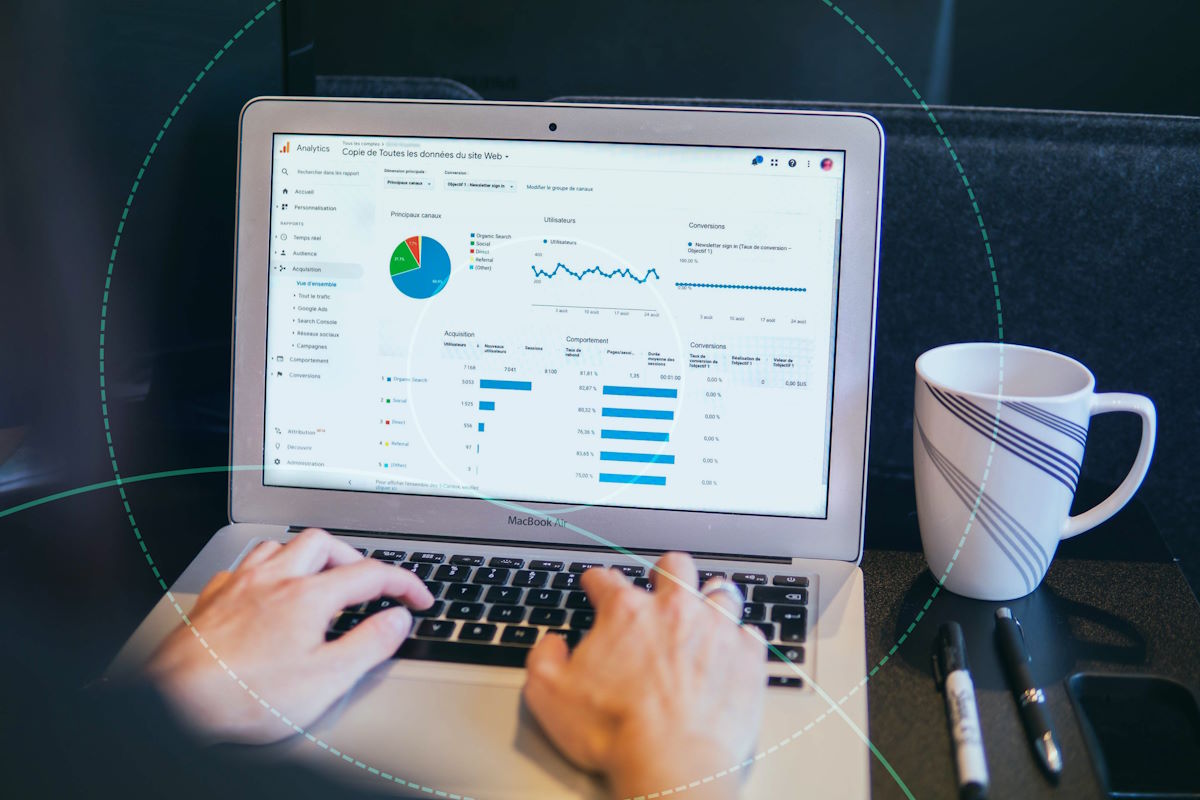Performance marketing drives immediate results in a pay-to-play model, while digital marketing takes a longer, more comprehensive view
In the ever-evolving landscape of marketing, two prominent strategies stand out with distinct approaches and outcomes: performance marketing and digital marketing. Where performance marketing homes in on measurable actions and tangible results, digital marketing encompasses a broad spectrum of online activities, from social media to content creation.
This article delves into the question of performance marketing vs digital marketing, exploring how digital marketing builds brand presence and engages audiences while contrasting that with the precision and accountability that performance marketing demands. Unraveling the complexities of these intertwined disciplines, we navigate the unique contributions each makes to the marketing realm and the symbiotic relationship they share in driving business success.
Ready to learn more? Dig deeper with Digital Marketing: The Complete Guide.
What Is Performance Marketing?
Performance marketing is a results-driven marketing approach that focuses on achieving measurable goals through a precision targeting and data-driven approach. Unlike traditional marketing methods, performance marketing emphasizes a pay-for-performance model, where advertisers only pay for specific actions or results, such as app installs, page clicks, ad views, white paper downloads, and sales.
The key components of performance marketing include setting measurable goals to track success and optimizing campaigns based on real-time data. This approach allows for more accurate targeting of the right audience, resulting in increased return on investment (ROI). Performance marketing differs from traditional marketing as it focuses on tangible results and performance rather than just brand awareness.
Many marketing channels offer performance marketing capabilities. Social media, search, and connected TV (CTV) are some of the most common. Each drives specific, measurable actions and outcomes, and its success is determined by its ability to deliver on these specific measurable results. By leveraging a data-driven approach and precision targeting, businesses can maximize their marketing efforts and achieve a higher return on investment.
What Is Digital Marketing?
Digital marketing broadly refers to marketing on the many channels and platforms found online to promote products or services, build brand awareness, and engage with target audiences. It includes channels such as social media marketing, email marketing, search engine optimization (SEO), content marketing, CTV marketing, and influencer marketing. It also generally encompasses performance marketing, as digital technology is what enables the pay-for-performance models of most performance marketing platforms.
By leveraging these channels, businesses can reach and engage with customers through online platforms, allowing for precise targeting and personalization of marketing efforts. This creates a two-way communication between businesses and customers, leading to higher brand awareness, increased customer loyalty, and ultimately driving sales.
In today's digital age, digital marketing is not just an option, but a necessity for businesses looking to thrive in the competitive marketplace. It has become an essential strategy for businesses in the modern marketplace due to its cost-effectiveness, ability to reach a larger audience, and the ability to measure the success of campaigns in real time.
Similarities and Differences
Performance marketing is all about leveraging specific metrics and key performance indicators (KPIs) to assess the success and impact of marketing campaigns. Digital marketing, on the other hand, has a broader scope and folds in various tactics aimed at building brand awareness and engaging with audiences online. Understanding the differences between performance marketing vs digital marketing is crucial for businesses looking to optimize their online marketing strategies and achieve their specific marketing goals.
Similarities
Digital marketing and performance marketing share several similarities, particularly in their occurrence within digital environments and the practicality of using both approaches together. Both strategies utilize digital channels such as social media, search engines, and websites to reach and engage with target audiences. Additionally, they both focus on measurable and trackable results, allowing for a data-driven approach to marketing decisions.
Both digital marketing and performance marketing offer immediate results, allowing businesses to quickly assess the effectiveness of their marketing efforts. However, they also require a long-term approach to see sustained success. It’s crucial for businesses to understand the differences between the two techniques to effectively use them together. Digital marketing focuses on brand awareness and online presence, while performance marketing is more targeted toward driving specific actions and measurable results.
By combining digital marketing for brand building and long-term growth with performance marketing for immediate and trackable results, businesses can create a comprehensive and effective digital marketing strategy.
Differences
The main difference between performance marketing vs digital marketing lies in the specificity of their terms. Performance marketing is focused on measurable tactics and immediate results, while digital marketing takes a longer-term approach and focuses on building brand awareness and engagement.
In terms of metrics and KPIs, performance marketing emphasizes specific, measurable actions such as click-through rates, conversion rates, and return on ad spend. For example, how many people are choosing to learn more after your ad airs on their CTV? Digital marketing, on the other hand, may focus on broader metrics like social media engagement, website traffic, and overall brand sentiment.
Performance marketing is more tactical and results-oriented, focusing on driving immediate actions and generating a rapid return on investment. In contrast, digital marketing takes a more holistic approach, focusing on building long-term relationships with customers and increasing brand loyalty.
While both strategies operate within the realm of online marketing, performance marketing is more focused on immediate results and specific metrics, while digital marketing takes a longer-term approach and is centered around brand building and engagement.
Choosing the Right Strategy for Your Business
When selecting a marketing strategy, businesses must consider their specific goals and resources. Business goals should drive the overall direction of your strategy, whether it's to increase brand awareness, drive sales, or grow your customer base. Understanding your target audience, including their demographics, interests, and behavior, will ensure that your strategy effectively reaches and resonates with them. Additionally, your budget will dictate the resources available for execution.
Performance marketing may be more suitable for immediate, quantifiable results, while digital marketing may be better for long-term brand building and customer loyalty. Ultimately, a combination of both strategies may be the most effective approach for a well-rounded marketing plan.
To evaluate the most suitable strategy for your business, it's essential to analyze audience behavior, preferences, and the performance of different traffic sources. This will help identify which tactics are most effective in reaching and engaging your target audience within your budget constraints. By considering these factors, you can develop a marketing strategy that aligns with your business objectives and drives meaningful results.
Make tvScientific Your CTV Partner
tvScientific was co-founded by senior executives with deep roots in search, programmatic advertising, digital media, and ad verification. We think scientifically, and our results are driven by a belief in one, simple formula: Trust = Data x Transparency x Control.
With powerful attribution capabilities, real-time reporting, automated optimization, and built-in, always-on testing, we believe that tvScientific provides the most robust, transparent, tailored CTV advertising platform. Once you see it for yourself, we know you will too. Request a demo today.






